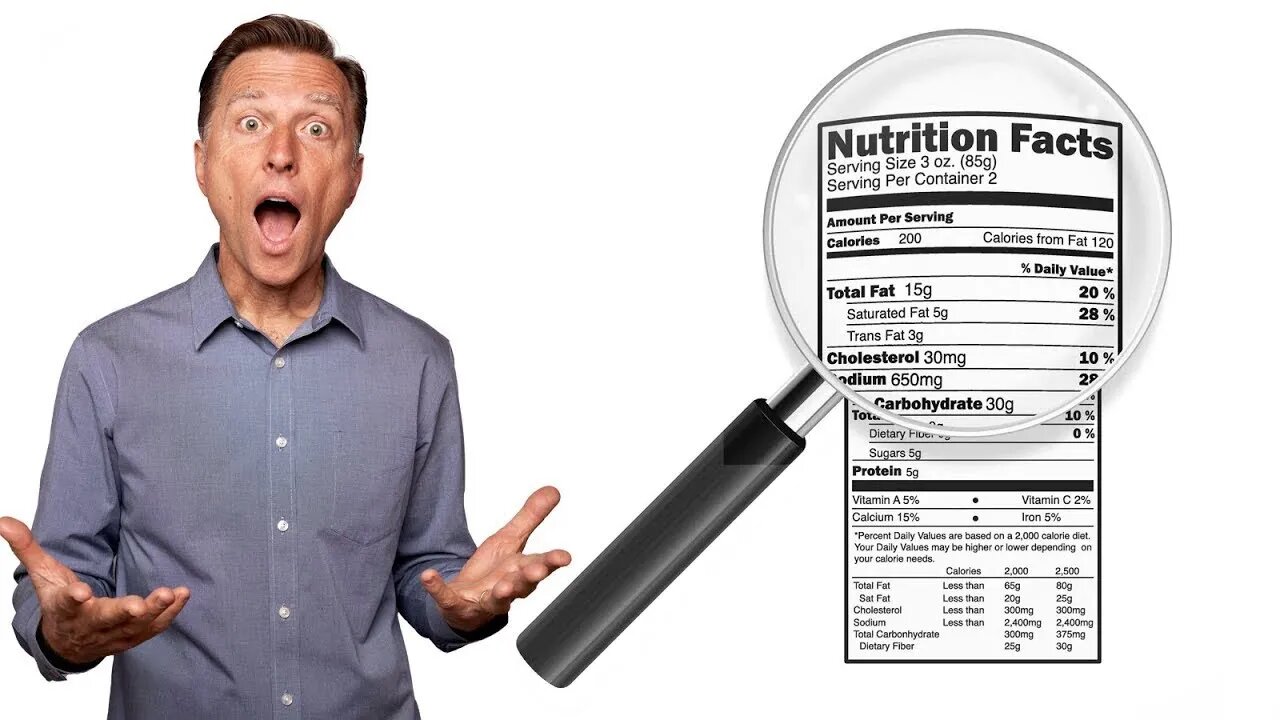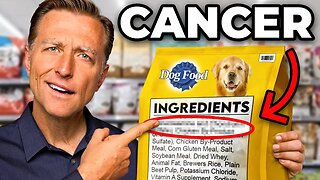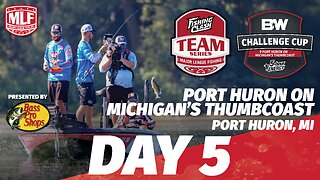Premium Only Content

The Shocking Fact about Your Food - Dr. Berg
Check out the Microbiometer Website Test Kit Here: https://microbiometer.com/product/microbiometer-10-test-starter-kit-2/
15% Off CODE: BERG15
How to Use the Microbiometer test: ▶️ https://youtu.be/gC5-1EnnxM0
The “nutrition facts” on your food labels aren’t facts at all. Check this out.
0:00 Introduction: Food labels explained
2:19 The big problems with nutrition facts
7:00 Understanding nutritional deficiencies
9:00 What you can do
10:53 How to tell if your food is nutrient dense
13:25 How to get nutrient-dense foods
16:50 An interesting interview
On your food labels, you’ll see nutrition facts. These aren’t really facts, though—they’re only guesses. Today I want to help you better understand these “nutrition guesses.”
A few definitions you need to know:
• RDAs (recommended dietary allowance):
This is how much of a certain nutrient you need based on your age, sex, or if you’re pregnant or lactating.
• AI (adequate intake):
This is how much of a certain nutrient you need to prevent an obvious deficiency.
• RDIs (recommended daily intake):
A simplified version by the FDA that's an estimate of nutrient needs based on a 2000-calorie diet regardless of age, sex, etc.
• %DV (percent of daily value):
This gives you a percent of a given nutrient as it relates to RDIs.
The problem is that they don’t factor in important variables when it comes to nutrition facts. People need different amounts of certain nutrients depending on their age, sex, activity level, or special conditions.
Other big problems with nutrition facts:
1. Possible conflicts of interest in the source information.
2. The amounts are related to preventing a deficiency and not achieving optimal health.
3. Some recommendations are too high.
Getting plenty of the right nutrients is crucial to supporting a healthy body. So, here’s what you need to do:
1. Eat nutrient-dense foods
2. Consume both animal products and plants
3. Consider the taste and smell of your produce to tell if it's nutrient dense
Using a Brix test is a great way to help you choose nutrient-dense foods. Nutrient-dense foods come from healthy soil. If you have a home garden, you can use a tool called a Microbiometer to do an at-home test on your soil. If you don’t have a farm or garden, I suggest getting your food from trusted farmer’s market vendors.
Watch to the end of this video for an interesting interview related to this subject and the Microbiometer.
Dr. Eric Berg DC Bio:
Dr. Berg, age 57, is a chiropractor who specializes in Healthy Ketosis & Intermittent Fasting. He is the author of the best-selling book The Healthy Keto Plan, and is the Director of Dr. Berg Nutritionals. He no longer practices, but focuses on health education through social media.
Follow Me On Social Media:
Facebook: https://bit.ly/FB-DrBerg
Instagram: https://bit.ly/IG-DrBerg
Anchor: https://bit.ly/Anchor-DrBerg
TikTok: https://bit.ly/TikTok-DrBerg
DR. BERG'S SHOP: http://shop.drberg.com/
Send a Message to his team: https://m.me/DrEricBerg
Disclaimer:
Dr. Eric Berg received his Doctor of Chiropractic degree from Palmer College of Chiropractic in 1988. His use of “doctor” or “Dr.” in relation to himself solely refers to that degree. Dr. Berg is a licensed chiropractor in Virginia, California, and Louisiana, but he no longer practices chiropractic in any state and does not see patients so he can focus on educating people as a full time activity, yet he maintains an active license. This video is for general informational purposes only. It should not be used to self-diagnose and it is not a substitute for a medical exam, cure, treatment, diagnosis, and prescription or recommendation. It does not create a doctor-patient relationship between Dr. Berg and you. You should not make any change in your health regimen or diet before first consulting a physician and obtaining a medical exam, diagnosis, and recommendation. Always seek the advice of a physician or other qualified health provider with any questions you may have regarding a medical condition.
#keto #ketodiet #weightloss #ketolifestyle
Thanks for watching! I hope this helps you better understand your food labels and nutrition facts. I’ll see you in the next video.
-
 10:44
10:44
Dr. Eric Berg
12 days agoThis Ingredient Is KILLING Your Dog...
8.13K33 -
 LIVE
LIVE
Major League Fishing
6 days agoLIVE! - Fishing Clash Team Series: Challenge Cup - Day 5
713 watching -

The Quartering
2 hours agoCount Dankula Live On Migrant Crisis In Europe, Whiteness & More
90.8K89 -
 3:46:59
3:46:59
Barry Cunningham
6 hours agoBREAKING NEWS: KAROLINE LEAVITT HOLDS WHITE HOUSE PRESS CONFERENCE (AND MORE NEWS)
49.8K35 -
 47:21
47:21
Stephen Gardner
19 hours ago🔥Elon Just Exposed the Most Corrupt Man on Earth - Trump Makes BOLD MOVE!
13.2K64 -
 LIVE
LIVE
The HotSeat
51 minutes agoI'm NOT Sorry! Guns Aren’t the Problem—Godless Culture Is
130 watching -
![[Ep 737] Media & Left Attack Prayer and God | Media Loses Control of Narrative | CDL Fraud](https://1a-1791.com/video/fww1/ca/s8/1/m/N/f/d/mNfdz.0kob-small-Ep-736-Make-Gender-Dysphori.jpg) UPCOMING
UPCOMING
The Nunn Report - w/ Dan Nunn
52 minutes ago[Ep 737] Media & Left Attack Prayer and God | Media Loses Control of Narrative | CDL Fraud
151 -
 2:53:12
2:53:12
Right Side Broadcasting Network
6 hours agoLIVE REPLAY: White House Press Secretary Karoline Leavitt Holds a Press Briefing - 8/28/25
97.9K37 -
 1:38:09
1:38:09
Simply Bitcoin
4 hours ago $1.75 earnedIs This Your LAST Chance to Buy Bitcoin Before the GENERATIONAL Bull Run Begins? | EP 1320
16.3K1 -
 LIVE
LIVE
StoneMountain64
2 hours ago#1 WARZONE TACTICIAN + New Battlefield Trailer
182 watching